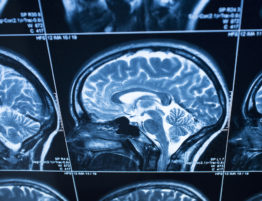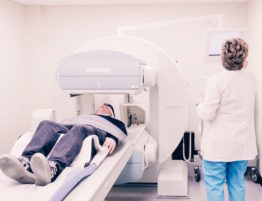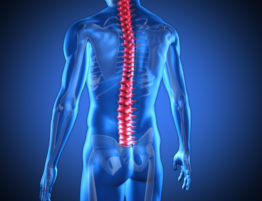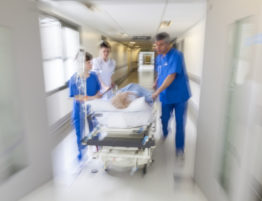Brain Injury Accident Attorney • Personal Injury Trial Lawyers, Long Beach, CA
Our attorneys take cases throughout Southern California, including Los Angeles County and the Counties of San Diego, Ventura, Santa Barbara, San Bernardino, Riverside, Orange County.
How to Get Started
If you or a loved one was in an accident and suffered a brain injury, it is important to seek medical attention. Because many brain injuries go undiagnosed, it is essential that you have a variety of tests and that a doctor carefully examine your symptoms. After seeking medical attention, talk to a personal injury lawyer who has experience handling brain injury cases. An attorney at Stolpmann, Krissman, Elber, and Silver, LLP, can evaluate your situation, and walk you through all the steps in litigation and explain your chances of recovery.
Brain injury cases can be complex and difficult because of several factors. Defendants and insurance companies may not believe that the plaintiff has actually suffered a brain injury because many diagnostic tests fail to detect the injury. In addition, many individuals who suffer from a brain injury have memory loss and may not be able to remember the specifics of the accident that caused their injury. While these factors may make proving the brain injury more difficult, they do not necessarily preclude recovery for your injuries. If you or a loved one has sustained a brain injury, it is important to discuss your situation with one of the lawyers of Stolpman, Krissman, Elber, and Silver, LLP. Contact us for a free consultation today.
Cause of Action – Negligence
Traumatic brain injury cases are generally personal injury claims based on negligence. If you or a loved one suffered a brain injury in a car accident, bicycle accident or sports accident, you will generally have a negligence claim. Elements of a negligence claim that the plaintiff must prove are: a legal duty owed by the defendant to the plaintiff, breach of that duty by the defendant, that the breach caused the plaintiff’s injuries and damages.
Establishing Your Case
Brain injury cases involve many unique issues, which may make it difficult for a plaintiff to prove his or her case. Brain injuries often go undiagnosed and untreated, and a delay in detection and subsequent delay in bringing a lawsuit may make it appear that the plaintiff’s injuries are not that serious. Further, individuals with brain injuries may look “normal,” which could make establishing their injuries and damages for a jury and the defendant more difficult. In addition, some closed head injuries and minor brain trauma often go undetected on a CT scan, MRI and other diagnostic tests. This can also make proving the injury more difficult.
Another potential problem is that individuals with brain injuries often have memory loss and do not remember the accident that caused the injury, which can make proof difficult. If the plaintiff cannot recall the specific facts of the accident, his or her attorney can call individuals who witnessed the accident to testify about it.
In addition to accident witnesses, the plaintiff will likely want to call other lay witnesses, such as family members, coworkers and friends, who can testify about the plaintiff’s condition before and after the accident. Individuals with brain injuries may have a poor understanding of their injuries. These witnesses can testify about coordination problems, dizziness, apathy, inability to express feelings, loss of memory, difficulty reading, confusion, inability to communicate, personality changes, headaches and sleep disorders that the plaintiff may now have because of the injury.
Expert Testimony
Generally, the testimony of an expert is admissible (permitted in court) if the witness is qualified as an expert based on skill, knowledge, training or education and the testimony will substantially help the judge and jury to understand the evidence. Expert testimony is generally not allowed if it is untrustworthy, speculative or based on assumptions that do not have a sufficient basis in fact. There are several types of expert witnesses that may be of assistance to the plaintiff in establishing his or her case. Medical experts in fields of neurology, neuropsychology, neuropsychiatry and psychiatry can help explain the plaintiff’s injuries, what caused the injuries and how the brain has been affected. A biomechanical engineer, someone who studies the relationship between force, acceleration and deceleration and the impact on the human body and brain, can explain how the brain can be damaged by changes in acceleration forces and there can be brain injury without the head actually hitting anything. A life care planner can quantify the future costs of medical care and for hiring people to help out with tasks that the injured party can no longer perform. An economist can testify about how much money the plaintiff will need to make the plaintiff “whole.”
Possible Defenses
One of the arguments that the defendant may raise is that the plaintiff does not have a brain injury. This argument generally takes one of two approaches. The defendant may try to argue that the plaintiff’s injuries are the result of a psychological or emotional condition. Further, the defendant may argue that the plaintiff is exaggerating his or her injuries. Another common argument the defendant may raise is that if the plaintiff does have a brain injury, than it was not proximately caused by the incident that is subject of the lawsuit. The defendant will try to suggest alternative causes for the plaintiff’s injuries.
Damages for Brain Injuries
If the plaintiff successfully proves the elements required for a negligence claim, the court may award damages. In general, a plaintiff is entitled to compensatory damages, which are intended to make the plaintiff whole. The plaintiff may be awarded damages for pain and suffering, lost earning capacity, medical bills and future medical expenses. In addition, the spouse and any children of plaintiffs with brain injury may be able to recover damages for loss of consortium or companionship.





